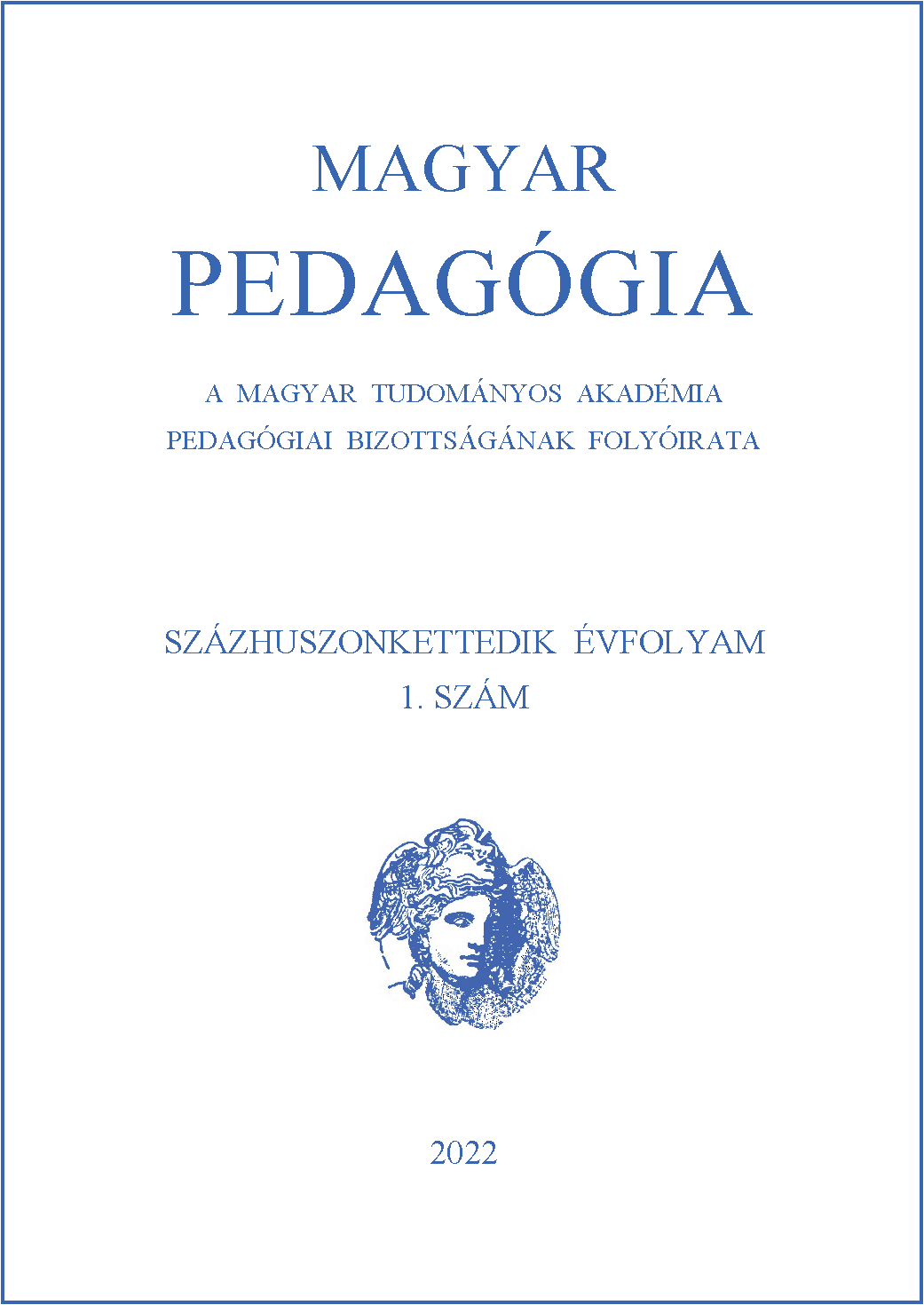A szakmai továbbképzések szerepe az angoltanár-képzésben oktatók IKT készségfejlesztésében: longitudinális esettanulmány a magyar felsőoktatási kontextusban a Covid-19 idején
Main Article Content
Absztrakt
The aim of this longitudinal case study was to find out about the motivations of initiating self-organised, professional development workshops for the ICT skills development of teacher trainers among the full- and part-time members of a Language Pedagogy Department of a Hungarian university amid the Covid-19 pandemic. The study also wished to inquire about the experiences of the participants (N = 10) regarding the contents of the workshops as well as their perceptions on how successfully they could implement what they had learnt about the workshops into their teaching repertoires over the course of multiple semesters (from Spring, 2021 to Spring, 2022). Data was collected through workshop plans, reflections, personal communication logs and two rounds of semi-structured interviews with the participants. As part of the first interview study (Spring, 2021), participants expressed that they had all welcomed the workshops and found them useful, especially because the university did not have a Centre for teaching and learning and the workshops had to be initiated within the department. The workshops also proved to be useful as the technological tools (Zoom, Microsoft Teams, One Note, Google Forms) introduced to the participants were almost completely new to them and they could find answers to their burning questions concerning how to engage learners in their synchronous online seminars. In the second round of interviews (Spring, 2022), it turned out, however, that only those instructors kept on including educational technologies in their in-person lessons who have successfully managed to change their beliefs about the importance of technology inclusion as part of university education, while some members of the department have almost completely returned to their usual teaching routines, except for handling assignments through LMS systems. This finding is all the more peculiar since each member of the department welcomed the workshop series in 2021 and most of them expressed the curious case of feeling as if they had been teacher trainees and not trainers when it first came to implementing seminars via technological means. Implications of the study raise questions towards institutions about their practices in engaging academic staff in further technological-pedagogical workshops after the first serious waves of the Covid-19 pandemic. Another issue is whether explicit digital educational skills training of teacher trainers have become integrated into the needs of the future generations of students, in which case universities have to make sure that their staff members are able to portray a wide technological-pedagogical repertoire when teaching their classes to meet such changing demands.

